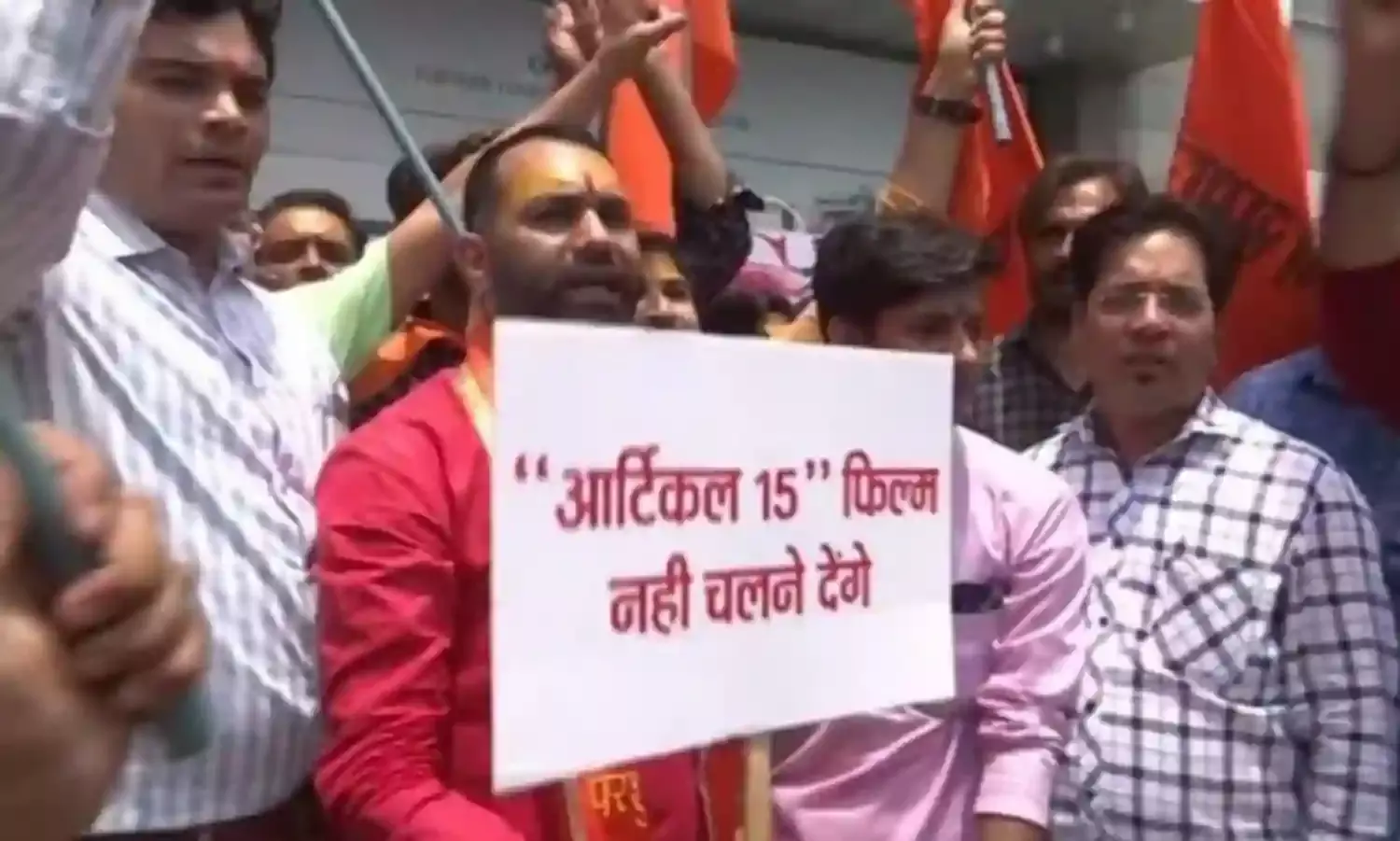The New Censor Board?
#TCHasRights - ‘I strongly feel that monetary considerations underlie these protests’

With the recent release of Anubhav Sinha’s Article 15 various protests, some of them violent, were reported outside cinema halls in Patna, Roorkee, Aligarh and Kanpur. These political actions were held by organisations claiming to represent Rajput and Brahmin interests. They said the movie dents the image of their communities.
Last month the Akhil Bharatiya Brahmin Samaj, an organisation that says it works for the welfare of Brahmins, filed a petition in the Supreme Court demanding it stop the screening of the film, which was cleared for release by the Central Board of Film Certification, popularly known as the Censor Board.
The Citizen asked film critic Shoma A.Chatterji why such organisations try to stop art in its tracks. “I do not find any plausible reason for these organisations to demand the ban of this or that film which has already passed through the censors, and either will be or has already been released. This has nothing to do with censorship.
“It seems to have increased over time because of the rising power of Right-Wing Hindu fundamentalists in the country, in every quarter, especially with the complete decimation of all other political parties in the general election. But at times, even other groups like the Dalits themselves have protested,” Chatterji observes.
As distinguished from peaceful protests, such violence and threats obstruct a basic human and civil right, and a fundamental right guaranteed to everyone in India, that is the right to freedom of speech and expression mentioned in Article 19.1.a of the Constitution.
After the protests and threats, Article 15 director Anubhav Sinha demanded the help of the authorities and police, saying theatre owners were scared of these organisations. But Sinha also tweeted that he had already pre-screened Article 15 to two such organisations, which reportedly had no objections to the film. These organisations are the National Rajput Karni Sena (army) and the International Brahman Mahasangh.
This is the same Karni Sena that created a violent uproar over Sanjay Leela Bhansali’s Padmavati, which had to be renamed Padmavat and be screened in front of the ‘royal family’ of Mewar.
Their statement tweeted by Sinha on June 29 says they no longer have a problem with his film. It says they were misled by the trailer and appeal to Sinha not to make such offending trailers in future.
For Chatterji, this poses problems. “You say Anubhav Sinha pre-screened the film. Why? What is the Karni Sena? Why do they wield so much power over filmmakers who are scared there will be repercussions from certain quarters?
“I am shocked that a so-called ‘independent’ filmmaker approaches a right-wing fundamentalist group to appease their feelings even before the film has been released reducing the CBFC to a gigantic joke!
“I strongly feel that there are monetary considerations underlying these protests or would-be protests. Otherwise, why do they remain silent later on or we suddenly find silence descends on them, and the theatrical screenings go on unabated?”
The list of movies that ran into such trouble is a long one, and there have also been many movies that had to face cuts from the CBFC, or were banned due to problems created by such organisations of varying popularity and clout.
Most of these organisations are affiliated to the right wing and religion, or their perception of it, seems to be the guiding principle behind their preventing the public from making up its own mind.
It is not just the politics behind ‘correcting’ cultural depictions that should concern us, but more broadly the culture of finding others’ ideas unacceptable. Surely it’s time we asked ourselves, is this powerful minority the new censor board?



